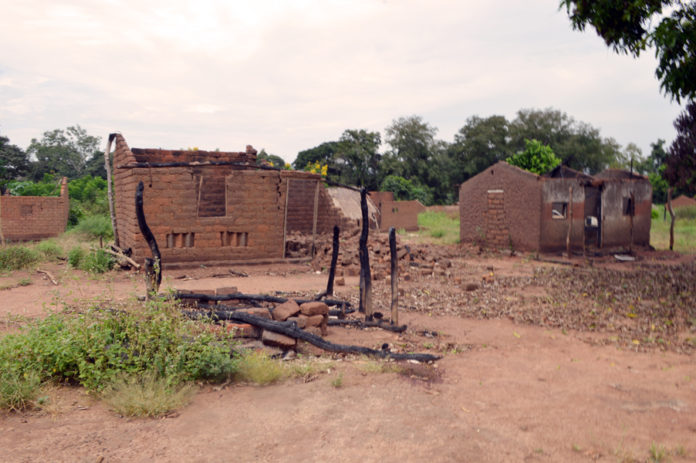It takes a village to raise a child. That much is known and widely agreed upon. The nature of that village, however, is ever devolving.
The traditional village consisted of grandmothers and grandfathers, aunties and uncles, cousins upon cousins, brothers upon sisters—fictive and kin. And those who bore the great prefix (as in great grandmother or great grandfather) wore proudly their many years of wisdom and knowledge.
The traditional village had numerous members and numerous talents. The person who was the best fisherman taught all the kids how to fish. The person who sew the best clothes taught all the kids how to mend and hem. The person who stirred up the best recipes taught all the kids how to cook. The person who drummed the most rhythmic beats taught all the kids to drum. All the skills necessary and meaningful for life and the perpetuation of fine culture, the village members collectively possessed.
The idea appears simple—as all things that make so much sense seem obvious in retrospect. But in the here and now, our perceptions are cloudy and hazy, and we could stare ingenuity in the eye and mistake it for triteness.
This village, the traditional village, of kin every which way you turn, of all talents right here at home, is quickly eroding. In its stead are arrangements like the nuclear family where the only kin folk for children (if any) are siblings and parents. Each core nucleus lives apart from the next, their orbits apart, seldom interacting.
That old, traditional village is only attainable for a cost. The only resemblance of the traditional village is a paid village.
Want to learn how to drum? That’s going to cost you: lessons at drum school, for a fee. You want to learn how to cook? That’s going to cost you: lessons at cooking school, for a fee. And so on.
Right before our very eyes, in no large span of time but just a couple of generations, the village has been broken down and monetized—like a company purchased by a vulture capitalists and dismantled for its parts.
Piece by piece, the village is for sale. You can pay for your community—your tutors, your private chefs and restaurant meals, your concerts for live music that the community once drummed at annual festivals. Your babysitters and nannies, your psychologists, therapists, and life coaches have all supplanted family communion of the old with the young and the compassion, thoughtful words, and mutual caretaking those relationships bring. All for a fee.
The traditional village once offered remuneration in kind. Your trade for mine; our trades for the entire community. Today’s paid village accepts cash, cheque, debit, or credit card.
The ultimate goal of vulture capitalists, of course, is to transform every village into a series of monetary transactions. Even better if these monetary transactions occurred in a cashless society, so any exchanges, large or small, can be closely monitored, sanctioned, and when deemed necessary, contained or canceled.
It comes as no surprise that the world works in mysterious ways. A seeming paradox of the universe’s mystique is how we can revolve in circles but still evolve, returning from whence we came but that point of déjà vu not being the same as before. Despite our routine cycles, we are ever-changing. We approach the same crossroads but cannot relive them in the same ways.
So it appears we cannot go back to the traditional village, at least not precisely as it was. The traditional Africa of our Ancestors as they knew it is gone forever, except in those untouched villages that have evaded strong WiFi signals, that still embrace the cultures that make our histories shine. For the rest of us, the task looms large of constructing the village sans monetary gains and losses. Money is the root of much evil and surely the end of the communal village that hosted and helped family, friends, kin, and community.
As the pendulum inevitably swings back to its point of origin, so too should we learn how to integrate the traditional village’s valuable lessons and methods of humane living into our modern lifestyles. We should not discard the village entirely in exchange for the inward-looking, isolating experience of the nuclear family but embrace the challenge of reclaiming the village for a better society and a more promising tomorrow.











Just perfect. Think venture/vulture capitalism and apply that concept to the modernization of our village spaces. The idea of fragmenting integral aspects of life/living for the so-called “Economic” gain is explored here by Amara Jali.
The writing is exquisite. The philosophy, jaw-dropping. Enjoy, Mes Amis!
Well written. Well articulated. Thank you, Amara.
Today, a child no longer belongs to the village. As a matter of fact, one who so much as points out a wrong committed by a child will be taken to court by the child’s mother for causing her child ‘depression’!
In my backyard, the more privileged nuclear family will dump a pot of 3-hour ‘stale’ feast in the bin while a hungry child in the village watches.
Spot on, my friend.